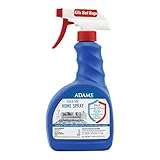White vinegar is an inexpensive pantry staple and is very common in kitchens. It is also a powerful and effective cleaning agent. Interestingly, this handy cooking ingredient can also be a pet owner’s friend. Cats and dogs hate the smell of vinegar, but it is generally safe for them. Vinegar can also help get rid of fleas.
White vinegar does not kill fleas. The acetic acid content only works as a flea-repellent because of its very strong smell. White vinegar can kill fleas only if you drown them. This food condiment is also toxic to pets when ingested. It is not recommended as a flea control solution.
This article will teach how to use white vinegar safely if there are fleas on your pets and inside your house.
Why Does Vinegar Kill Fleas?

Ideally, all life stages of fleas cannot be killed by vinegar. Regardless of the concentration, vinegar can only repel fleas but will not kill them. Once fleas smell vinegar, they will try to escape. So, if there are fleas in your house and you spray them with a vinegar solution, they will leave but will return once the smell is gone.
On the other hand, vinegar can kill fleas if they get drowned in it but not at once. Fleas cannot swim but will float and will find a way to get off the water’s surface.
Amazingly, these pesky parasites can survive underwater for up to 24 hours. This is why submerging a dog with fleas in water is not an ideal solution.
How to Use White Vinegar for Fleas?

There are several ways to use white vinegar against fleas on dogs. You can apply the vinegar solution as a spray or by treating your dog with a clean cloth dipped into the solution.
To help repel fleas from pets, add one teaspoon of white vinegar or apple cider vinegar to one quart of the drinking water of your pet.
You can also use white vinegar as a flea-repellent but not directly on your pet dogs and cats. Simply make a vinegar solution and spray it on your pet’s bedding and other areas where your pet loves to stay.
Just make sure the areas are already completely dry before allowing your pets to stay or sleep on them.
Does White Vinegar Hurt Dogs?

It depends on how you use white vinegar on your dogs. According to some veterinarians, a 1:1 dilution of white vinegar and water is safe for dogs.
This vinegar solution is usually used in cleaning ear infections, such as ear canals with yeast or bacteria. If your dog’s ears are extremely sore, add more water.
On the other hand, pure white vinegar can likely cause gastrointestinal upset to your dog once a huge amount is ingested. Your dog might suffer from diarrhea and vomiting, which can lead to dehydration. To avoid further pain to your dog, bring your pet to the nearest veterinary clinic right away for medical treatment.
How to Apply White Vinegar to Dogs for Fleas?
White vinegar is safe for dogs as long as it is mixed with water and is used properly. Since white vinegar contains acetic acid, fleas hate its taste and smell. Hence, white vinegar can repel fleas but will not kill them.
So, if your dog has fleas, here’s how to apply vinegar solution safely to your pet:
- Mix one part of white vinegar and three parts of water.
- Whether you will use a spray or a piece of cloth, make sure it is clean and dry and has never been used for other chemicals.
- Test a small amount on your dog. If your pet feels comfortable, add more white vinegar, but don’t exceed the 1:1 ratio.
- Apply the solution directly to your dog’s skin. Never apply it to the eyes, mouth, and wounds.
- Carefully rub your hands on your dog’s face, body, and legs.
- Don’t rinse it and allow it to dry. Also, don’t allow your dog to lick its body.
- After about 20 minutes, comb your dog using a flea comb with fine teeth, such as Hartz Groomer's Best Flea Comb for Dogs and Cats .
- Tell pesky parasites to "bug off" with extra-fine teeth that comb...
- Specially designed to work for cats and dogs with all coat types
- Doubles as a grooming tool to detangle mats around delicate areas
- Ergonomically designed handle allows for maximum comfort and...
How Does Vinegar Get Rid of Fleas Naturally?
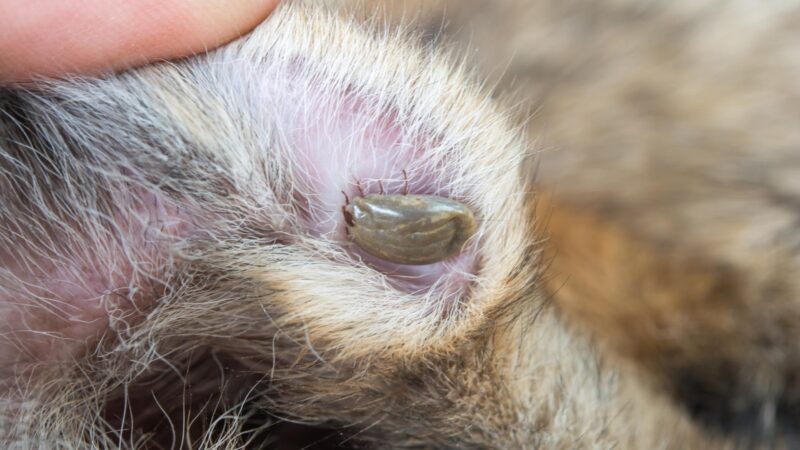
Aside from containing acetic acid, vinegar has a very strong smell that fleas cannot tolerate. But then, fleas will only be repelled and will go away since vinegar is not enough to kill them.
Nevertheless, adult fleas and larvae on dogs that are covered with vinegar can no longer escape, and you can now kill them.
Do Vinegar and Dawn Kill Fleas?
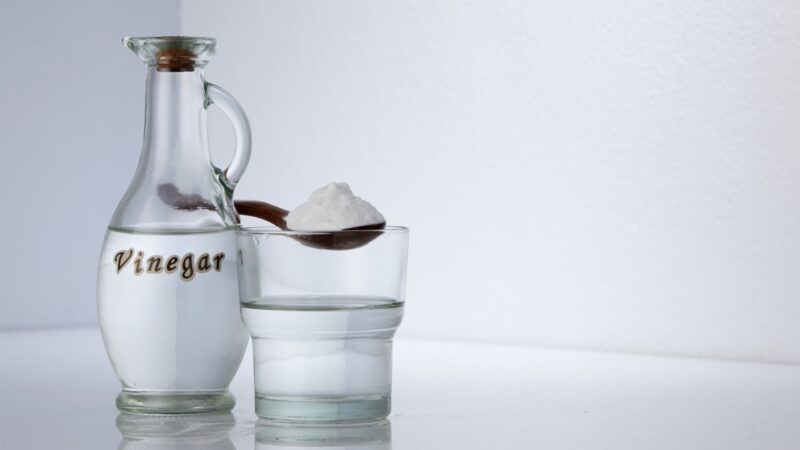
Vinegar and Dawn soap can kill fleas, but veterinarians don’t recommend them for use on pets. While it is true that Dawn dishwashing soap is effective for removing grease and oil in wild birds, using it on fleas has a different effect. Adult fleas may get killed using vinegar and any kind of soap, but only those in pets.
Unlike birds, fleas have a hard shell covering their bodies called an exoskeleton, which also helps them float in water. Meanwhile, soap creates a surface tension that forces fleas to sink.
Therefore, soap can kill adult fleas and larvae by drowning them. But then, this method is not a permanent solution.
Dawn or any brand of dishwashing soap should also not be used on pets with fleas since they are not designed for them. Instead, use a dog shampoo such as Vet’s Best Flea Advanced Strength Dog Shampoo .
For cats, use a cat flea treatment such as Advantage II Flea Prevention and Treatment for Cats .
- TICK & FLEA SHAMPOO FOR DOGS: Say goodbye to pesky fleas and...
- CERTIFIED NATURAL: Our flea & tick shampoo for dogs is made with...
- VETERINARIAN FORMULATED: Our dog flea & tick shampoo is...
- 2X FLEA & TICK FIGHTING POWER: Our flea & tick shampoo provides...
- MADE IN THE USA: Our flea and tick dog shampoo is made in the USA...
Which Works Better to Repel Fleas, White Vinegar or Apple Cider Vinegar?
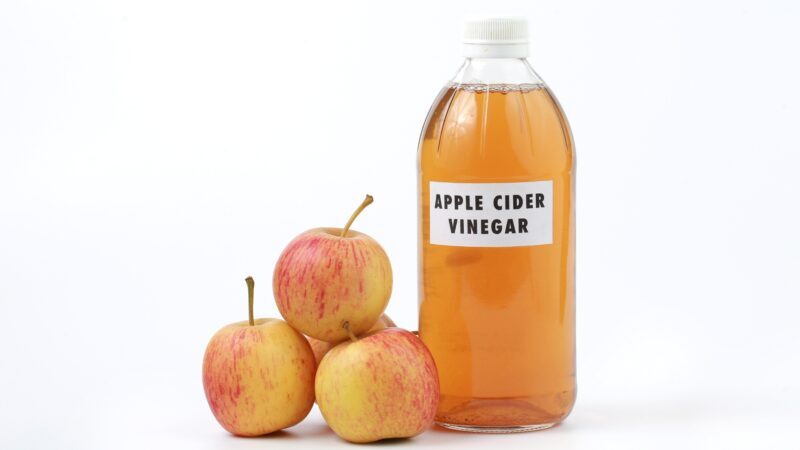
To answer this question correctly, you should first understand the difference between white vinegar and apple cider vinegar. To start with, white vinegar is clear or white, while apple cider vinegar is brown. White vinegar is 4-7% acetic acid and 93-96% water and is made from the fermentation of ethanol (grain alcohol).
Meanwhile, apple cider vinegar (ACV) is 5-6% acetic acid, and 94-95% water, and is made from apple juice, which is the liquid extracted from crushed apples. It also went through some fermentation processes.
Both vinegar types are used for cooking, but apple cider vinegar has a slightly sweet taste, while white vinegar is very sour.
Despite containing acetic acid, white vinegar, and apple cider vinegar are not enough to kill fleas. Fleas are not attracted to sweets, which means that you cannot use apple cider vinegar as bait.
Overall, both of them are equally effective flea repellents. Yet, the efficacy depends on the concentration and application.
How to Use Apple Cider Vinegar on Kittens?
Like dogs and cats, kittens also hate the taste and smell of apple cider vinegar. Nevertheless, apple cider vinegar has a lot of health benefits for kittens if used properly. This includes boosting their immunity, helping cure UTIs (urinary tract infections), and helping repel fleas. Here are the proper ways to use ACV on kittens:
- Use only raw and unfiltered ACV such as Bragg Organic Apple Cider Vinegar .
- Certified Organic Bragg Organic Raw Apple Cider vinegar is...
- Bragg Apple Cider vinegar is organically grown, processed and...
- It's a wholesome way to add delicious, light flavor to most...
- Each bottle is 16 fluid ounces
- Mix one part of apple cider vinegar with two parts of lukewarm water.
- To help repel fleas and ticks, spray it on your kitten’s fur carefully. Never allow ACV to have direct contact with its eyes and open wounds.
- Use a cat flea comb to remove fleas.
- You can also use diluted ACV for cleaning your kitten’s ears.
- If your kitten and its mother have UTI, mix one teaspoon of ACV to one cup of their drinking water. However, this is good only if the pH of your pet’s urine is above 7. Bring urine samples to the lab for urinalysis.
- You may also dip your kitten’s paw in the solution and allow your pet to lick it. Note, however, that huge amounts of intake can make them sick.
Warning:
Undiluted or pure apple cider vinegar can cause diarrhea and vomiting in pets, including kittens. Some kittens are also allergic to AVC when applied to their skin.
If your kitten feels uncomfortable, stop it and find other ways to treat them. Better yet, bring your pet to a veterinarian before doing any of the above.
What Is the Best Flea Spray for Inside the House?
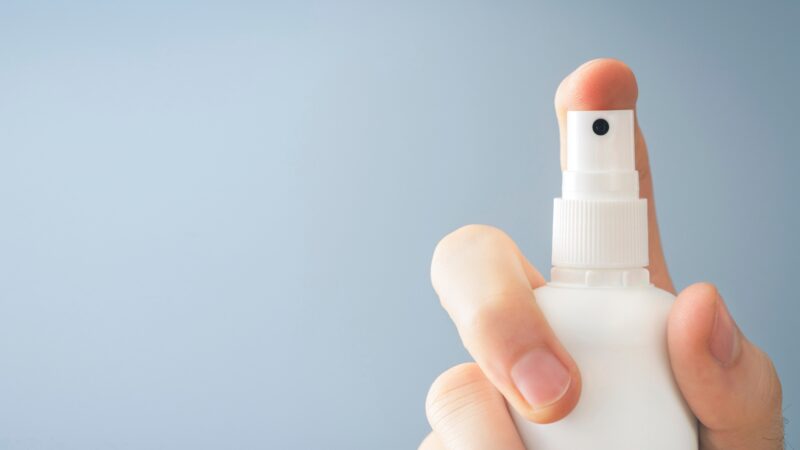
There is no single best flea spray that you can use indoors since each of them has advantages and disadvantages. There are DIY (Do it yourself) flea sprays, while some are plant-based.
You can also buy flea sprays in stores and online. To help you out, here are some homemade and commercial flea spray products:
1. Essential Oil Sprays
Cinnamon essential oil, citronella essential oil, lemongrass essential oil, and peppermint essential oil are only among the many essential oils that can repel fleas. However, they are not recommended for treating pets with fleas because of their toxicity. When using essential oil sprays, make sure pets are not around.
2. Bleach Solution Spray
Without a doubt, bleach kills fleas in contact, including larvae and eggs. Simply mix bleach with water (not with other chemicals) and spray it in flea-infested areas. But although bleach solution is very effective, it is only registered as a disinfectant, not as a pesticide. Not to mention, it is very toxic to humans and pets.
3. Rubbing Alcohol Spray
Also called isopropyl alcohol, rubbing alcohol is a known disinfectant but can also kill fleas. In fact, drowning fleas in rubbing alcohol is easier than crushing them. Spraying rubbing alcohol on fleas can also kill them. But just like bleach, don’t ever spray it directly on your pet. Alcohol is also flammable and can cause a fire.
4. Ortho Bed Bug, Flea, and Tick Killer
Since most homemade solutions against fleas are toxic to pets, you may also try flea killer products such as Ortho Home Defense Max Bed Bug, Flea and Tick Killer . This flea spray contains bifenthrin, which kills fleas, ticks, and bed bugs on contact. You can spray it on pet bedding and floors, but not directly on your pets.
- Use Ortho Home Defense Max Bed Bug, Flea & Tick Killer to kill...
- Use spray as a spot treatment around bed frames, mattress...
- Kills even the toughest bed bugs (pyrethroid-resistant bed bugs)
- Second step of a 3-step bed bug solution system
- The continuous spray Comfort Wand easily gets into hard-to-reach...
5. Adams Flea & Tick Home Spray
Adams Flea & Tick Home Spray kills all life stages of fleas, as well as ticks, bed bugs, and other pest insects. This versatile spray contains S-Methoprene and is fast-drying, fragrance-free, and non-staining. You can spray it on carpets, beds, upholstery, and pet bedding. Just don’t spray it directly on humans and pets.
- PROVEN EFFECTIVE - Kills fleas, flea eggs, flea larvae, bed bugs,...
- KILLS FAST - Begins killing fleas in as little as 5 minutes
- DUAL ACTION - Kills over 30 insects and prevents new infestations
- 7-MONTH PROTECTION - Provides up to 7 months of flea protection
- COMPLETE HOME DEFENSE - Use on carpets, rugs, upholstery, and pet...
6. Raid Flea Killer Carpet and Room Spray
Raid Flea Killer Carpet and Room Spray kill adult fleas and eggs on contact with less effort. Thanks to its wide-angle spray and ability to spray upside down, spraying is very easy. Among its main ingredients are pyrethrins, tetramethrin, and Piperonyl Butoxide. Although generally safe, don’t spray it directly on pets.
- Kills fleas and ticks on contact
- Kills hatching eggs for up to 4 months
- Non-staining on water-safe fabrics & surfaces
- Also works upside down, making thorough spraying easy
- Wide-angle spray
Related: How To Kill Fleas? Best Flea Killers
Vinegar has many health benefits for pets, but it does not mean that you will solely depend on it. Although rare, you can also have fleas at home even if you have no pets. They can invade your home through stray dogs and cats. This is why fleas control should focus more on prevention, rather than just killing them.
List of Sources
Potter, M. F. (2018). Flea Control and Prevention. University of Kentucky.
Layton, B., et al. (2019). Control Fleas on Your Pet, in Your House, and in Your Yard. Mississippi State University.
Giedt, E. J. (2017). Flea Control. Oklahoma State University.
Benson, E. P., Zungoli, P. A. (1997). Flea Control. Clemson University Cooperative Extension Service.
- How to Get Rid of Copperheads | Practical Guide - August 27, 2023
- How to Get Rid of Corn Snakes | What Makes Them Aggressive? - August 27, 2023
- How to Get Rid of Alligators | Safety Measures and Removal Methods - July 16, 2023





